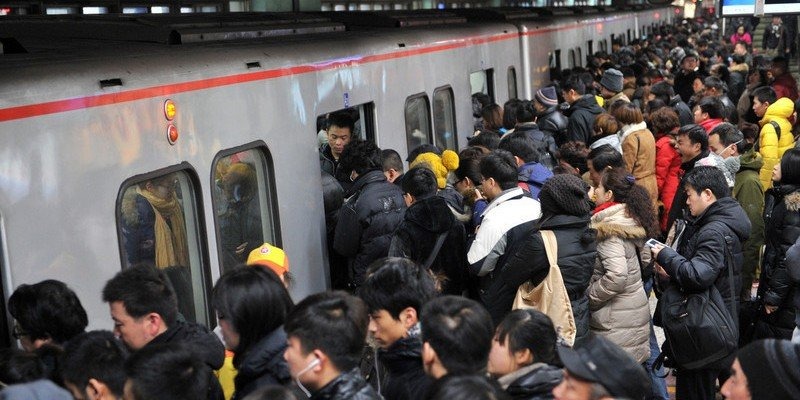Yikatong, the company handling payments for Beijing's public transit, this week enabled contactless payments for riders using Android — but has reportedly skipped support for the iPhone.
The core issue is that Apple doesn't allow NFC payments outside of Apple Pay, according to the Financial Times. That might have allowed payments through a Yikatong iPhone app, or common local platforms Alipay and WeChat Pay. Android phones by companies like Huawei and Xiaomi have no such restrictions on their NFC chips.
It's not clear why Beijing's transit isn't supporting Apple Pay directly. Apple is, however, in just fifth place in the Chinese smartphone market, and even more marginal in terms of the country's mobile transactions. Apple Pay has less than 1 percent marketshare, whereas over half of the market is controlled by Alibaba's Alipay.
Both Alipay and WeChat Pay normally rely on scanning QR codes, rather than NFC.
The Chinese situation sits in stark contrast with neighboring Japan, where Apple Pay is well-supported on public transit. The company has even used this as a marketing point for the iPhone 7.
Apple will be opening up NFC access on the iPhone by way of a new framework in iOS 11, Core NFC, but apparently only for purposes other than payments.
 Roger Fingas
Roger Fingas








 Christine McKee
Christine McKee
 Malcolm Owen
Malcolm Owen
 Marko Zivkovic
Marko Zivkovic

 Andrew Orr
Andrew Orr
 Andrew O'Hara
Andrew O'Hara
 William Gallagher
William Gallagher



-m.jpg)



27 Comments
Chinese will always find a way to stop or make harder for outside companies to do business in China. Opening NFC can create security issues but most in world don't care because they have not much to loose.
Thats because China hates Apple...Like I said in another post which I know some hated...China is an absolutely pain in the ass.
It seems like they deliberately chose not to support Apple Pay and them blamed Apple for not letting them have direct access to the NFC.
Presumably, there solution requires users to open an app in order to make a payment - Apple Pay is so much more user friendly.
No restrictions on Android makes it less secure.
Apple Pay will be just fine.